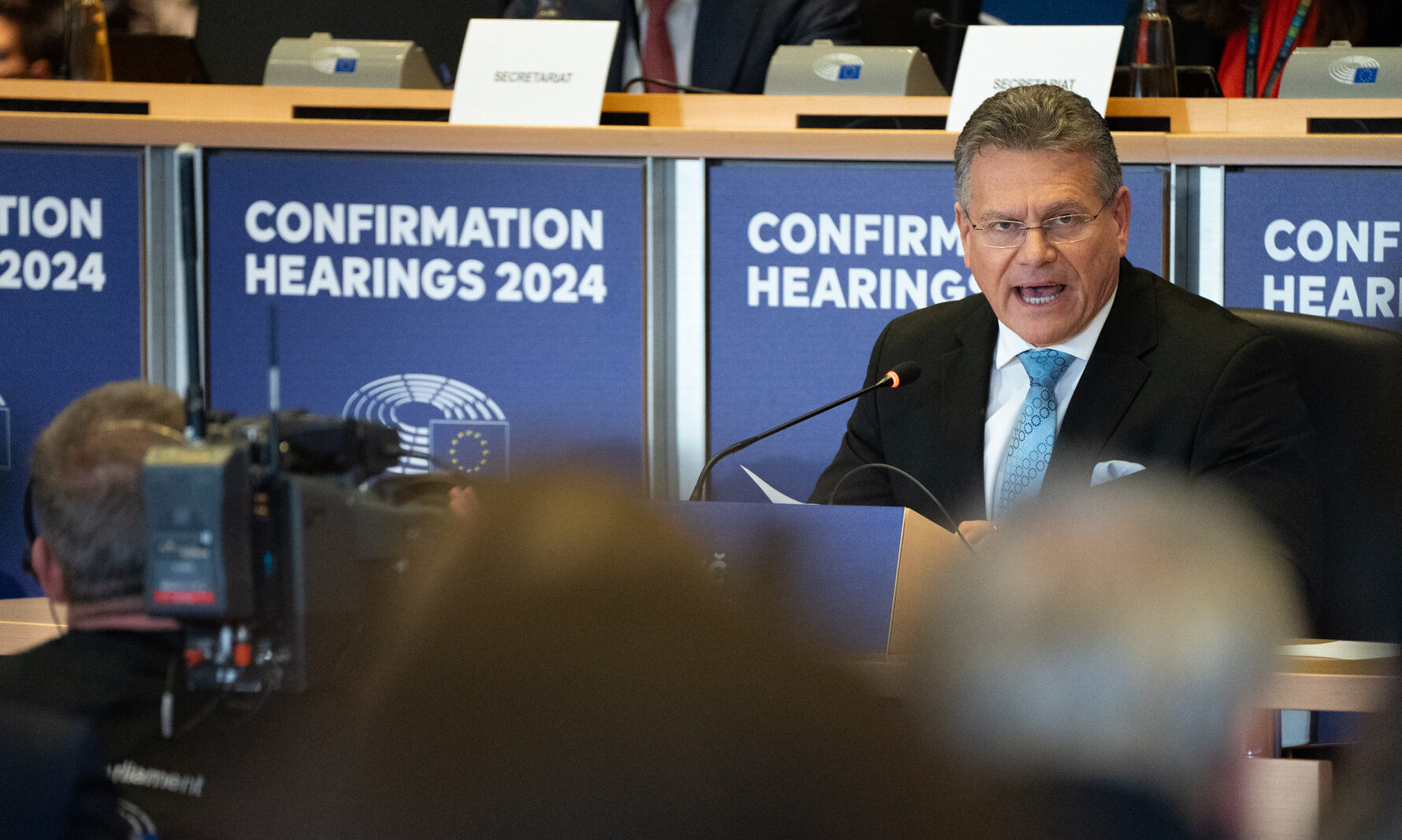
The EU market is no longer considered to be fair, transparent, open, or predictable. This is the main conclusion of the report titled “Facing Challenges, Forging Ahead: CCCEU Report on the Development of Chinese Companies in the EU 2024/2025.” Based on a survey and in-depth interviews with the management of 200 Chinese companies directly investing in the European Single Market, the research was carried out between July and October 2024 by the China Chamber of Commerce to the EU (CCCEU) in cooperation with the global consultancy firm Roland Berger.
The findings indicate a deterioration in the EU’s business environment, as perceived by Chinese companies operating within the single market. Overall assessments of this environment have fallen for the fifth consecutive year. Whereas in 2019, 2020, 2021, 2022 and 2023, the assessments were 73, 70, 68, 65 and 64 respectively, they fell to 62 in 2024. The evaluation considered six dimensions: the political environment; the economic and industrial environment; human resources (including talent acquisition and highly skilled workforce); infrastructure and support facilities; business services; and the research environment. All but infrastructure and support facilities experienced varying degrees of decline, with over 50 percent of respondents stating that the EU is becoming increasingly protectionist.
Chinese Perceptions of the EU Business Environment
The vast majority of respondents (78 percent) identified uncertainty as a key factor affecting their business operations in the EU market. The main challenges identified were market barriers driven by political tensions in EU-China relations, including rising compliance costs and growing anti-Chinese sentiment. Non-political barriers – as perceived by Chinese investors – include high labor costs and a lack of understanding of Chinese companies by their partners, customers and even employees. Additionally, inflation and slowing economic growth were identified as putting further pressure on Chinese operations in the EU.
More than half of the respondents reported experiencing “differential treatment.” Despite the EU’s stated commitment to fair market principles, 64 percent of respondents felt that their companies were treated differently due to their Chinese origin. Major concerns include limited access to public procurement and markets, competition issues, reduced access to subsidies and incentives, lengthy approval processes and limited channels of communication with local authorities.
Chinese companies have also voiced concerns over the EU’s emphasis on “economic security” and “risk mitigation,” warning that such policies could further politicize their business activities. Indeed, almost 90 percent of respondents reported that these policies have had a negative effect on their businesses, undermining confidence and forcing strategic (re)adjustments.
The Impact of EU Policy Shifts
The electric vehicle sector is a case in point. The EU’s implementation of the Foreign Subsidies Regulation (FSR) has impacted Chinese EV manufacturers. Over 70 percent reported direct effects, with 11 percent describing the regulation as a “significant threat” to their businesses, and 50 percent citing indirect negative consequences. Furthermore, 30 percent of Chinese EV manufacturers affected by EU anti-subsidy investigations have been forced to revise their investment plans in Europe.
Challenges posed by the FSR extend beyond the EV sector. In March 2025, the CCCEU organized a closed symposium attended by representatives of Chinese companies from various sectors, including finance, healthcare, batteries, photovoltaics, and renewable energy. Participants criticized the basic definitions of the FSR as “too broad and ambiguous,” arguing that the regulation grants the European Commission “excessive discretionary power.” They also assessed that the implementation of the regulation “has hampered their greenfield investment plans in Europe, effectively erecting market barriers that stifle regular business operations and expansion.”
Returning to the CCCEU report, the EU’s designation of Chinese companies as “high-risk suppliers” in the area of digital economy was also poorly received. The majority of respondents (approximately 89 percent) believe that the politicization of data and cybersecurity issues in the EU has negatively affected their business operations. In addition to being excluded from research cooperation on 6G, Chinese companies now face the risk of industrial decoupling, diverging technical standards, and further adverse policy measures.
New EU regulations – such as the Corporate Sustainability Due Diligence Directive (CSDDD) and the Forced Labor Regulation (FLR) – are driving up compliance costs. According to the CCCEU survey, 68 percent of Chinese company executives reported that the CSDDD has impacted their businesses, while 35 percent are concerned about the future impact of the FLR.
Strategic Outlook and the Continued Importance of the EU Market
Despite these challenges, Chinese companies continue to see opportunities in the EU market. About 21 percent of respondents consider the EU to be their most important market outside China, and 66 percent expect its strategic importance to grow over the next three years. Around 30 percent intend to expand their operations in the EU. When it comes to the medium- and long-term prospects of economic relations between China and the EU – particularly in green cooperation and digital transformation – 55 percent of Chinese companies remain optimistic. More than half believe that enhanced cooperation could accelerate the EU’s digital transformation and promote the development of AI applications and complementarity in industrial supply chains. The report makes 283 recommendations for improving the EU business environment, with Chinese companies operating in the EU counting on these.
Recent data from the Rhodium Group and MERICS confirms the EU’s continued attractiveness and importance to Chinese direct investors. The report highlights a notable turnaround in Chinese FDI. For the first time after seven consecutive years of decline, capital investment by Chinese companies in foreign markets increased in 2024. While 64 percent of Chinese FDI was directed towards emerging markets – particularly in Asia (32 percent) – Europe remained the top destination among high-income economies in 2024, receiving EUR 10 billion (53.2 percent of total inflows).
The report poses the following question: is the rise in EU protectionism – through instruments designed to safeguard the single market – unjustified? Such measures would likely not exist if EU-China bilateral relations were based on equality, which they are not. Nevertheless, the European market remains crucial for China, particularly in the context of the ongoing US-China trade war and the de facto closure of the US market to Chinese companies, as it provides opportunities – among other things – for projects related to green and digital transformation. Assuming China understands the reasons behind the EU’s changing approach to bilateral relations, another question remains: is it ready and willing to take this into account and adjust accordingly in its engagement with the EU?
Written by
Ewa Radomska
Dr Ewa Radomska is an Assistant Professor at the Department of Economics and Economic Policy at the Institute of Law, Economics and Administration, University of the National Education Commission, Krakow, Poland. Her research interests include international economic relations, with a focus on foreign direct investment, international trade, and economic cooperation between the European Union and China. Her latest monograph is titled “The EU and China on Foreign Direct Investment: Trends, Challenges and Prospects.”


